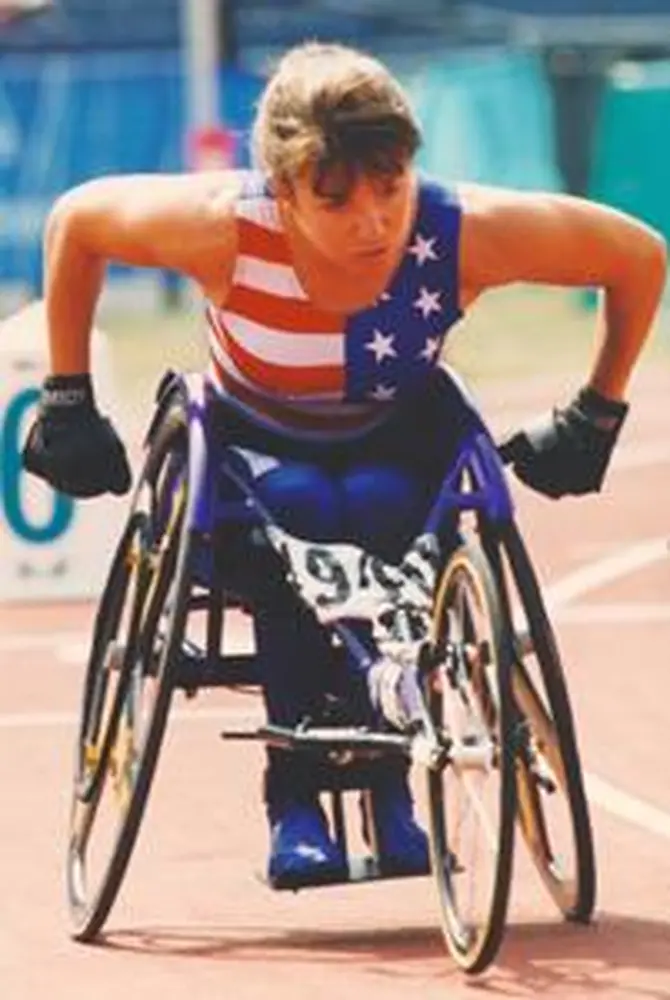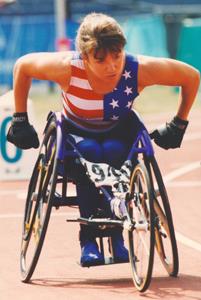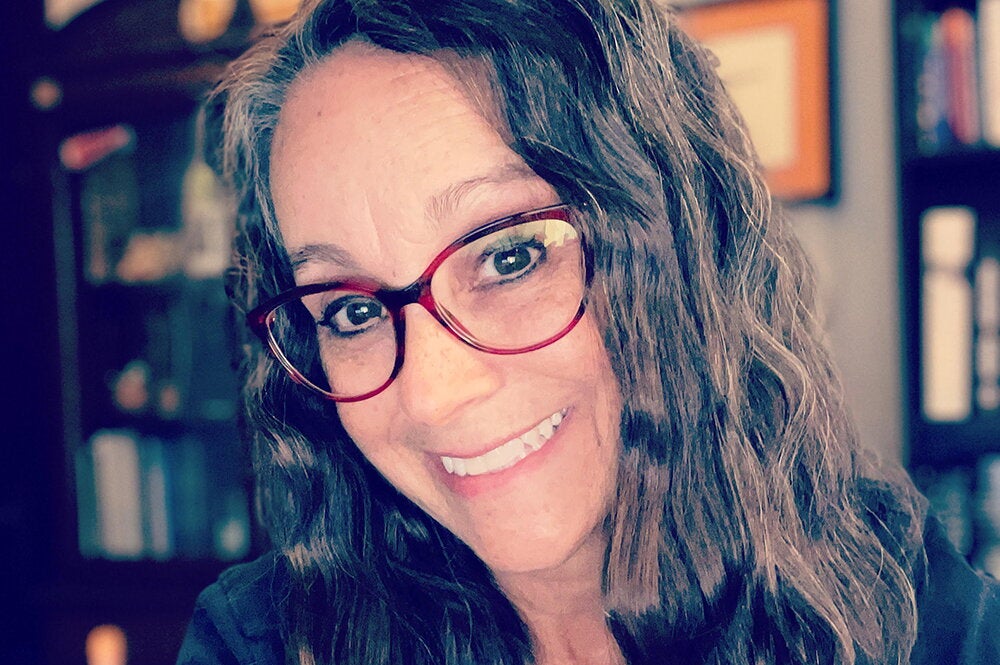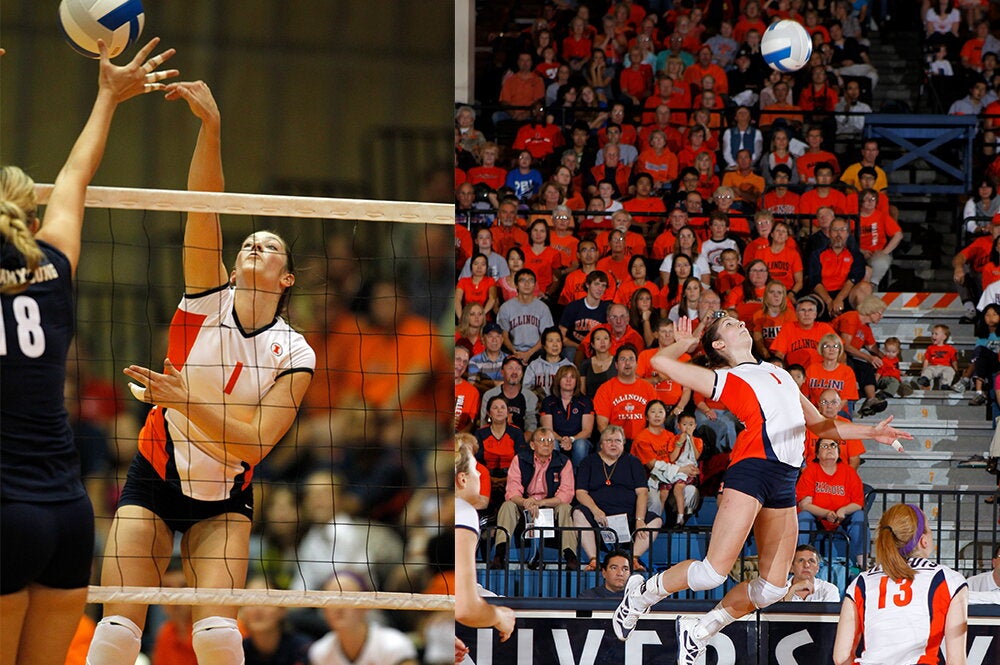

You might think that a sports story is near its end when an athlete settles into a wheelchair, but this is not a normal sports story. Cerebral palsy redefines normal. Linda Mastandrea became a world-class athlete only after she started using her arms to move.
By the time she retired from competition in 1999, the University of Illinois alum had won 15 gold and five silver medals in international wheelchair racing, including two Paralympic Games, where she won a gold medal in the 200-meter sprint and a silver medal in the 100-meter sprint. This year, Mastandrea (AB ’86, speech communication) was the first female Paralympic athlete inducted into the National Italian American Sports Hall of Fame, with her name standing among the likes of Joe DiMaggio, Rocky Marciano, and Vince Lombardi.
She traces her feats to the U of I, where she arrived in the early 1980s as a freshman from the Chicago suburbs. Born with cerebral palsy that affected only her legs, Mastandrea, now in her 40s, lived her entire childhood through high school without the benefit of any walking aids as doctors encouraged her to live as “normally” as possible. She was plagued with injuries, and when she was too slow or exhausted, she’d ride on the backs of friends and family members. The vast U of I campus looked bigger to her than it did to most freshmen.
One day she was being treated for a sprained ankle when she was approached by U of I’s wheelchair basketball coach, Brad Hedrick (now director of the school’s Disability Resources and Educational Services), who asked her to try wheelchair basketball. She initially refused, having given up on the idea of sports long before college, but after persistent requests from Hedrick and other players, she joined. It was the first time she’d been in a wheelchair—at first she lacked the arm strength and could hardly move.
She played for three years, however, and though Mastandrea didn’t begin racing until after she graduated, her entry into U of I’s strong tradition of wheelchair athletics—she calls the U of I “the granddaddy of wheelchair sports” in the United States—introduced her not only to a faster and less painful means of getting around, but also to competitors as dedicated as you’ll find anywhere. Two of her college mentors, Ann Cody and Sharon Hedrick, were later her Paralympic teammates, as was the legendary wheelchair racer Jean Driscoll, who enrolled at the U of I shortly after Mastandrea graduated (Mastandrea and Driscoll are now discussing international sports development projects together).
Mastandrea went on to begin racing and competed successfully in several international wheelchair racing competitions in the ’90s, including the 1992 Paralympics in Barcelona and the 1996 Paralympics in Atlanta, where she won the medals (Barcelona was only an exhibition event, but there she narrowly missed setting a world speed record).
“After growing up thinking that I couldn’t play sports or be any good, knowing that I could was really kind of an eye-opener,” Mastandrea says. “It opened the door to me seeing myself in a different way, a more confident way, and believing in myself in a different way than I had before I started playing sports.”
She earned a law degree in 1994 from the Chicago-Kent College of Law and since 1995 has practiced law in a variety of areas, primarily focusing on disability discrimination. She has also been heavily involved with disability sports organizations, including the International Paralympic Committee’s legal committee.
These days she’s a hearing officer for special education cases in Illinois while also running her private legal practice. She also devotes time to freelance writing and educational and motivational speaking. She realizes that succeeding despite cerebral palsy has given her the ability to inspire people in all walks of life.
“You know,” Mastandrea says, “it’s been kind of fun. I’ve been able to use my experience to let people see that they have some opportunity that maybe they didn’t think they had. That’s true for people with or without disabilities.”


